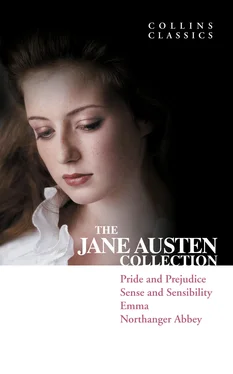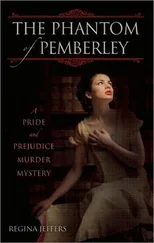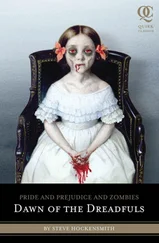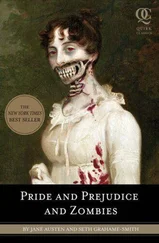With new found security and a more settled lifestyle, Austen found herself able to write once more. By 1811 she had become a published novelist with Sense and Sensibility . There followed, Pride and Prejudice in 1813, Mansfield Park in 1814 and Emma in 1815. At about this time Austen began to feel unwell and suffered from a progressive disease, which saw her health decline. She continued to write but became increasingly infirm until she succumbed in December 1817 at the age of 41. Her final novel, Persuasion , was published posthumously along with Northanger Abbey shortly after her death. There is also a seventh, incomplete, manuscript named The Brothers or Sanditon , which she started to write in 1817, even though her health was deteriorating
There has been considerable speculation about the nature of Austen’s illness. The two most likely culprits are Addison’s disease and Hodgkin’s lymphoma, both of which were described and named later in the 19th century. It is known that she suffered bouts of fatigue and difficulty in walking. She eventually died in the City of Winchester and was laid to rest in Winchester Cathedral.
The wind of change was so strong following Austen’s short life that her novels fell out of favour quickly with the onset of the Victorian era. Her books continued to sell, but they were not considered fashionable, as people gravitated towards the gritty realism portrayed by Dickens, Hardy and their contemporaries. The public wanted to read about characters exposed to the harshness of life without privilege, as opposed to Austen’s characters whom were generally rather comfortable and concerned themselves with matters of little real consequence.
Austen was actually using elements of her own, relatively comfortable life to weave her tales of fiction, so to her they were genuine situations and circumstances worthy of analysis. She also never married, so her angst was focussed on pondering matters of the heart. In many ways she lived vicariously through her characters, allowing them to experience the intimacies that she craved, but that eluded her all of her life.
It is interesting to note that many contemporary authors choose to give their novels period settings as their plots often rely on rules of formality and etiquette and characters must behave in a certain way to ensure that a narrative will work. Jane Austen was living and writing in a time when such rules were part of polite society and can be seen as the originator of this plot devise. It is fair to say that societal rules reached their zenith of priggishness during Austen’s lifetime. It was all about defining oneself in terms of class and wealth, so that there were very clear guidelines about what one should and should not do and how one should behave.
Austen was herself born into a family at the lower end of the English hierarchical stratum known as the gentry, which was situated beneath the nobility. In modern terms she would have been considered well educated and privileged. This gave Austen a certain vantage point as a writer, for she rubbed shoulders with people both above and below her on the social scale.
Austen was a humanist and made it abundantly clear that she thought little of the notion that some people were better or worse than others simply through accident of birth. In essence, her literature is defined by her desire to express that it is what goes on inside a person that matters above and beyond other concerns. Austen makes theatre of the absurdities that she observes in polite society because she has an innate cynicism, but she always avoids being vitriolic in her prose.
It is this delicate balancing act between crafting an engaging narrative and passing comment with subtle allegory that made her novels a success then and now. Austen expertly translates her criticism of the human condition into witty and insightful prose. Through her satirical eye, the characters become relevant to the reader as they recognise elements or traits of themselves or others in the disparate personalities. Although such psychological connectives were more pertinent in society at the time that Austen was writing, they still resonate today because people frequently gravitate towards societal rules, albeit in a less formalized way. Therefore, it is still easy to relate to Austen’s stories through the experiences of her characters and the situations and events that arise in her novels are timeless and emotive.
Austen was not, however a romanticist. She was at the cutting edge of English literary fiction, just as the artist Joseph Turner was at the cutting edge of English painting. Both were born in the same year, 1775, and both used their creativity to document the modern world they knew. Austen is often described as a sentimental novelist, because her themes are primarily about the exploration of human feeling and emotion. This was a concept relatively new to society at the time, not least because everyday life hadn’t yet afforded people the luxury of the leisure time necessary for such self-indulgences. Indeed, during Austen’s lifetime it was still only the wealthy with time on their hands. Most were far more concerned with the hardships and realities of making a living and raising a family. That is largely why Austen’s novels focus so much on the upper echelons of society, as only the idle rich were not preoccupied by such matters of survival.
Austen’s life was short, but it spanned the turn of the 19th century, when the Industrial Revolution was in full spate. After her death, English literature made way for a new genre, realism, which saw novelists using their prose to illustrate the lives of the common man, woman and child who struggled to adapt to a rapidly changing environment, rife with disease, poverty, injustice, criminality and urbanization. Had Austen lived longer perhaps she would have responded and adapted to these new trends.
Pride and Prejudice
TITLE PAGE
VOLUME ONE
CHAPTER 1
CHAPTER 2
CHAPTER 3
CHAPTER 4
CHAPTER 5
CHAPTER 6
CHAPTER 7
CHAPTER 8
CHAPTER 9
CHAPTER 10
CHAPTER 11
CHAPTER 12
CHAPTER 13
CHAPTER 14
CHAPTER 15
CHAPTER 16
CHAPTER 17
CHAPTER 18
CHAPTER 19
CHAPTER 20
CHAPTER 21
CHAPTER 22
CHAPTER 23
VOLUME TWO
CHAPTER 24
CHAPTER 25
CHAPTER 26
CHAPTER 27
CHAPTER 28
CHAPTER 29
CHAPTER 30
CHAPTER 31
CHAPTER 32
CHAPTER 33
CHAPTER 34
CHAPTER 35
CHAPTER 36
CHAPTER 37
CHAPTER 38
CHAPTER 39
CHAPTER 40
CHAPTER 41
CHAPTER 42
VOLUME THREE
CHAPTER 43
CHAPTER 44
CHAPTER 45
CHAPTER 46
CHAPTER 47
CHAPTER 48
CHAPTER 49
CHAPTER 50
CHAPTER 51
CHAPTER 52
CHAPTER 53
CHAPTER 54
CHAPTER 55
CHAPTER 56
CHAPTER 57
CHAPTER 58
CHAPTER 59
CHAPTER 60
CHAPTER 61
VOLUME ONE
It is a truth universally acknowledged, that a single man in possession of a good fortune must be in want of a wife.
However little known the feelings or views of such a man may be on his first entering a neighbourhood, this truth is so well fixed in the minds of the surrounding families, that he is considered as the rightful property of some one or other of their daughters.
‘My dear Mr Bennet,’ said his lady to him one day, ‘have you heard that Netherfield Park is let at last?’
Mr Bennet replied that he had not.
‘But it is,’ returned she; ‘for Mrs Long has just been here, and she told me all about it.’
Читать дальше

![Джейн Остин - Sense and Sensibility [С англо-русским словарем]](/books/26612/dzhejn-ostin-sense-and-sensibility-s-anglo-thumb.webp)









![John Bruce - The Lettsomian Lectures on Diseases and Disorders of the Heart and Arteries in Middle and Advanced Life [1900-1901]](/books/749387/john-bruce-the-lettsomian-lectures-on-diseases-and-disorders-of-the-heart-and-arteries-in-middle-and-advanced-life-1900-1901-thumb.webp)
